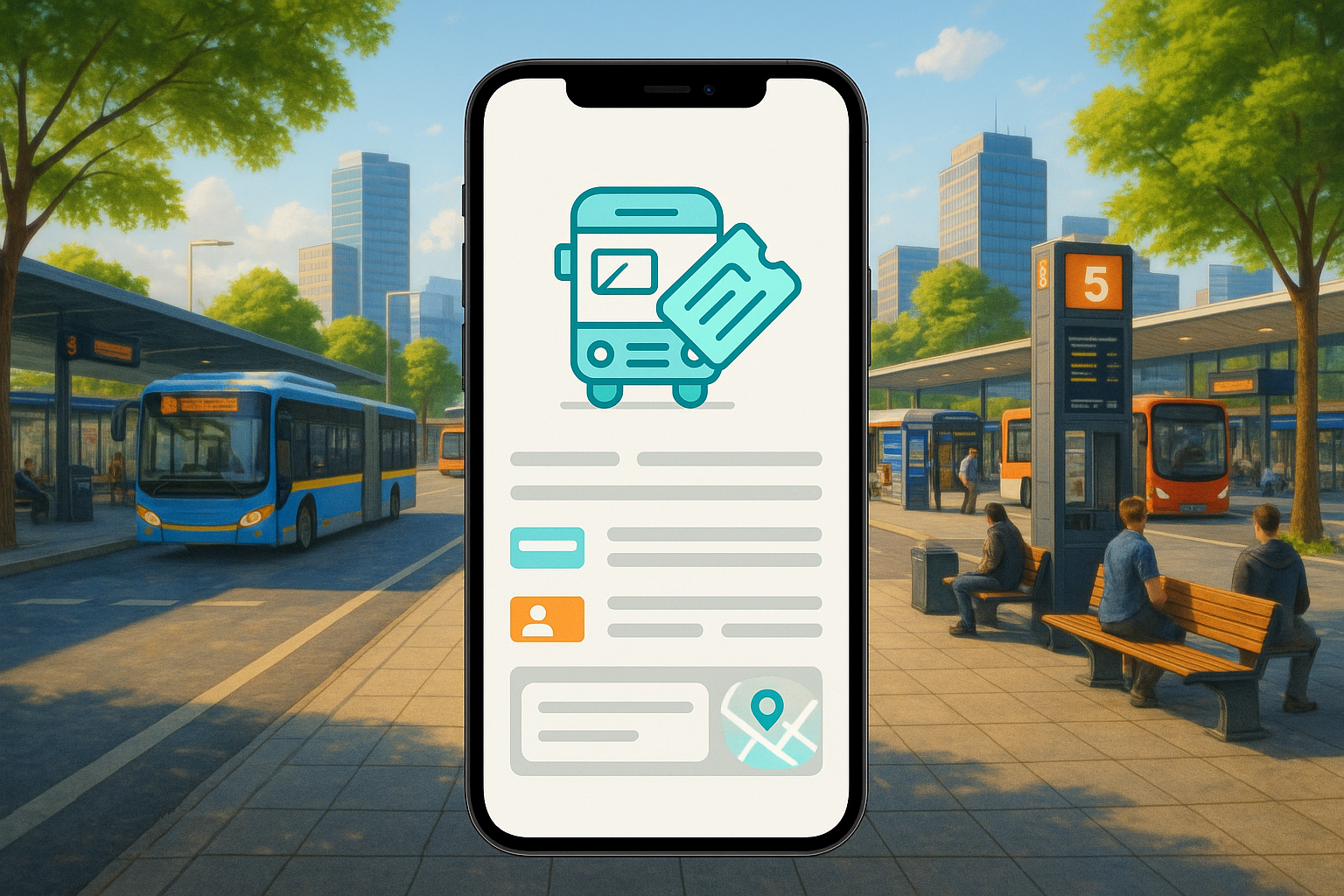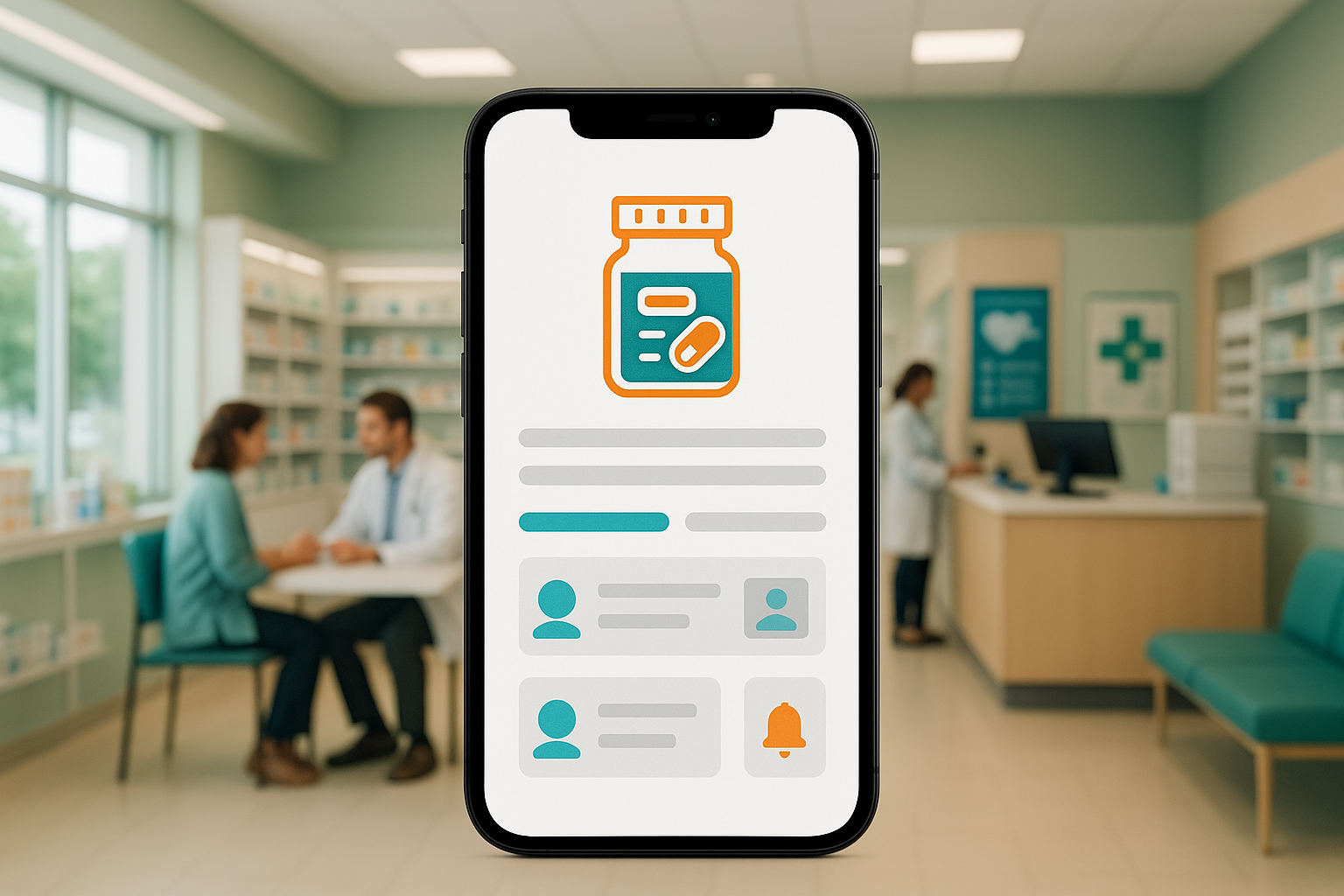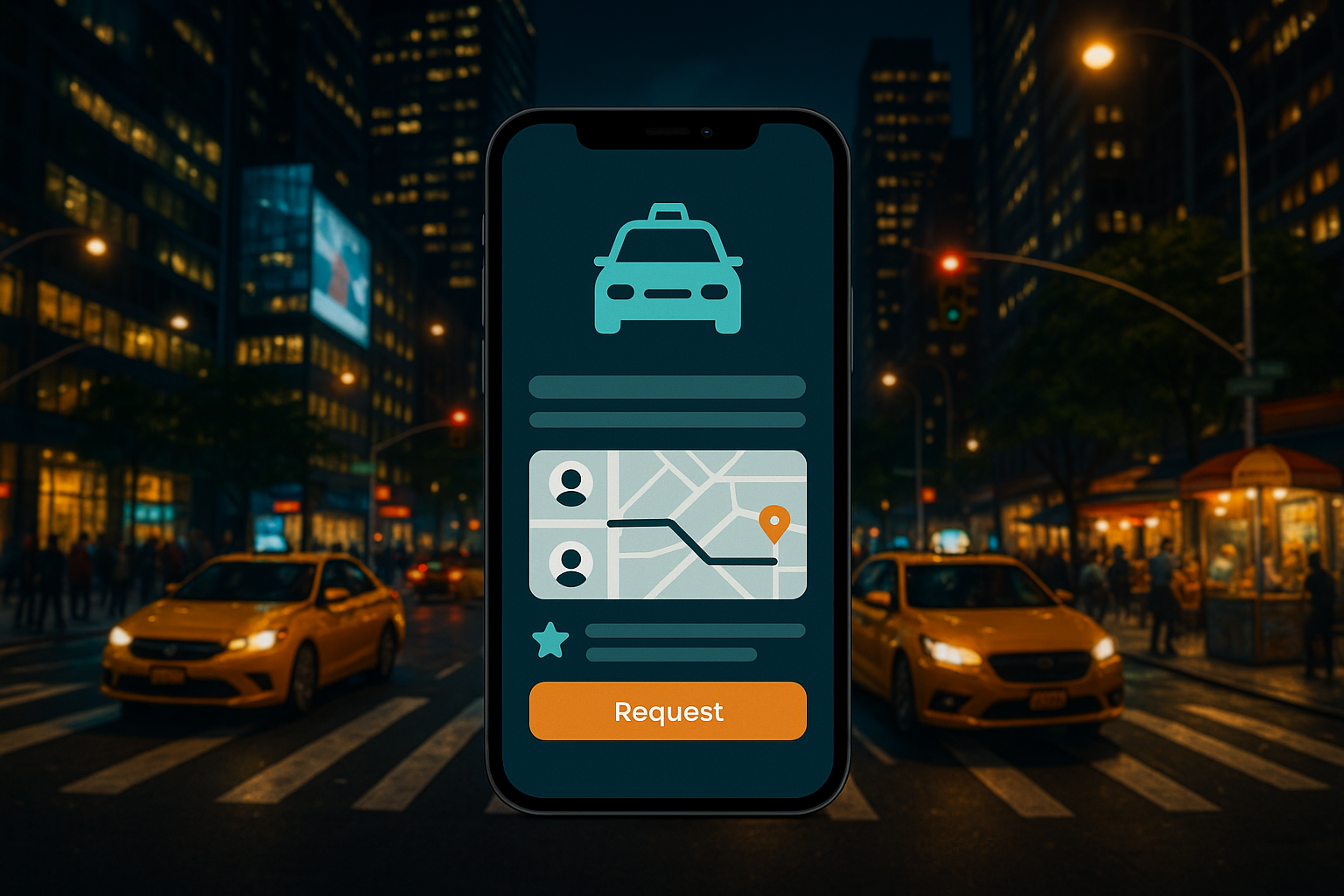Introduction
In an age of instant gratification and digital convenience, the transportation industry has undergone a radical transformation. Gone are the days of standing in long queues at bus terminals or making uncertain travel plans. Today, travelers expect to book their journeys with a few taps on their smartphones. This shift has created a massive opportunity for businesses to launch their own bus ticket booking applications. However, the path from a great idea to a successful, functional app is fraught with technical complexities and strategic challenges.
Developing a robust bus ticket booking app is far more intricate than building a simple informational website. It requires a deep understanding of complex backend systems, real-time data processing, third-party service integrations, and stringent security protocols. Attempting such a project without specialized expertise can lead to budget overruns, missed deadlines, and a final product that fails to meet user expectations.
This article serves as a comprehensive guide to navigating the world of bus ticket booking app development. We will explore what these applications entail, delve into the significant hurdles of in-house development, break down the associated costs, and identify top development partners who can bring your vision to life. As a leading US-based AI-powered app development firm, we at MetaCTO have over 20 years of experience turning ambitious concepts into market-leading mobile applications. We understand these challenges intimately and are here to show you how to build your app the right way, from day one.
What is a Bus Ticket Booking App?
At its core, a bus ticket booking app is a specialized, cloud-based program designed to facilitate online bus reservations. It acts as a digital bridge connecting bus operators with passengers, streamlining the entire process of searching, booking, and managing travel. However, a truly effective system is a multi-faceted platform that serves the distinct needs of both the customer and the business owner.
The Passenger-Facing Experience
For the customer, the app is a portal to effortless travel planning. A modern bus reservation system empowers passengers with a suite of self-service functions designed for convenience and control. These features include:
- 24/7 Accessibility: Customers can access the system at any time, day or night, to check for bus availability, reserve a ticket, or even cancel a booking according to the operator’s policy.
- Detailed Search and Filtering: Users can easily look up bus routes, compare ticket prices, and view different service classes to find the option that best suits their budget and comfort preferences.
- Seat Selection: The system allows customers to view a detailed seat map of the bus and reserve the specific seat they want, a crucial feature for passengers who have a preference for a window, aisle, or location away from the lavatory.
- Real-Time Availability: The application provides an up-to-the-minute view of seat availability for any given date, eliminating the frustration of attempting to book a sold-out trip.
- Live GPS Tracking: A key feature of a modern app is GPS integration, which allows passengers to observe the bus’s current location in real-time. This provides a more accurate estimated time of arrival and reduces travel anxiety.
- Flexible Payment Options: To cater to a wide user base, the system allows customers to pay using a variety of secure methods, including credit cards, debit cards, internet banking, and online wallets similar to PayPal.
- Automated Confirmations and Ticketing: Upon successful booking, the system automatically sends confirmation emails and SMS messages containing the booking number and an electronic ticket, which can be shown to the driver.
- Instant Notifications: The app keeps passengers informed with notifications about any scheduled or unexpected operating changes, roadwork on the route, or significant deviations from the intended path.
The Operator-Facing Management System
Behind the scenes, the bus reservation system is a powerful tool for the business owner, providing comprehensive control over every aspect of the operation. It simplifies complex logistical and administrative tasks, allowing the owner to focus on growth and service quality. Key functionalities for the operator include:
- Centralized Management: The system provides a single dashboard to manage the entire fleet of coaches, staff schedules, customer information, services offered, and more. It even makes managing personnel details and salaries a breeze.
- Real-Time Sales Network View: Operators gain a live, consolidated view of every available seat across their entire sales network. This includes tickets sold through the app, website, on-the-spot by drivers, and even through third-party Online Travel Agencies (OTAs).
- Dynamic Pricing and Revenue Management: A sophisticated system can support multiple pricing models. This ranges from simple single-price models to complex, demand-based yielded pricing for competitive intercity routes and even serial travel passes for commuter and shuttle services.
- Third-Party Integration and Reselling: The platform is built to interact with numerous other systems. It supports integration with fleet management software, Enterprise Resource Planning (ERP) systems, and social media. It also enables the reselling of available seats to third parties, opening up new revenue streams.
- Driver and Manifest Management: The system provides drivers with a continuous, real-time picture of their constantly changing passenger manifest. It ensures the driver is aware of a passenger waiting at a designated stop and allows them to accept electronic tickets directly from a passenger’s smartphone.
- Advanced Marketing Tools: A complete system includes a robust toolkit for business growth, featuring tools for social media integration, email marketing campaigns, and loyalty program management.
- Business Intelligence: The platform provides all its data in a fragmented, well-structured, and accessible style, making it easy to use this information in specialized business intelligence tools for analysis and strategic planning.
Reasons It Is Difficult to Develop a Bus Ticket Booking App In-House
While the features of a bus booking app are clear, the technical execution is a monumental task. Many businesses underestimate the expertise required, assuming their internal IT department can handle the project. This often leads to failure. Here are the core technical challenges that make in-house development so difficult and why partnering with a specialist firm is often the wiser choice.
1. Selecting the Right Technology Stack
The foundation of any mobile application is its technology stack—the combination of programming languages, frameworks, databases, and tools used to build it. The facts state that selecting the right technology stack for bus ticket booking app development is crucial for performance and scalability. An incorrect choice at the outset can doom the project.
An underpowered stack will lead to a slow, frustrating user experience, frequent crashes, and an inability to handle a growing number of users. A poorly chosen architecture can make it nearly impossible to add new features or integrate with new partners in the future, effectively stifling business growth. Making this decision requires foresight and a deep understanding of a vast array of technologies, from backend languages like Node.js or Python to mobile frameworks like React Native or native iOS/Android development. Most in-house teams simply do not have the breadth of experience across multiple large-scale projects to make this critical long-term decision correctly. At MetaCTO, our 20 years of launching over 120 successful projects gives us the perspective needed to choose a stack that is not just right for today, but ready for tomorrow.
2. The Labyrinth of API Integrations
A bus booking app does not exist in a vacuum. Its functionality is heavily dependent on data from external sources, which requires complex API (Application Programming Interface) integrations. The facts are clear: integrating APIs for bus schedules, GPS tracking, and payment gateways is necessary to offer a smooth booking experience.
- Bus Schedule and Operator APIs: A truly useful app often needs to aggregate data from multiple bus operators. Each operator may have a different system, a different data format, and a poorly documented API. Your development team would be responsible for writing, testing, and maintaining code to communicate with each of these disparate systems, a time-consuming and error-prone process.
- GPS Tracking APIs: Implementing real-time bus tracking requires more than just displaying a pin on a map. It involves integrating with the GPS hardware on each bus, building a backend service to receive and process a constant stream of location data, and then broadcasting that data efficiently to thousands of users’ devices without draining their batteries or crashing the app.
- Payment Gateway APIs: While integrating a single payment gateway is standard, offering a variety of safe, reliable options is a significant challenge. The facts emphasize that it is important to make sure payment gateway choices are safe when giving them to customers. This goes beyond just integration; it involves ensuring PCI compliance for handling credit card data, implementing fraud detection mechanisms, and managing the complexities of failed transactions and refunds.
3. Building a Reliable Communication Infrastructure
A booking is not complete until the customer has a confirmation in hand. The app development process must account for robust communication channels. The facts state that the alternatives need to be able to connect to SMS and have a way to send confirming emails with a booking number and e-tickets to users automatically.
This is a reliability and scalability challenge. What happens if your SMS provider has an outage? Are your confirmation emails landing in spam folders? Building an automated system that can send thousands of transactional messages reliably requires expertise in message queuing, failover systems, and deliverability best practices. An in-house team building this from scratch is likely to encounter pitfalls that a seasoned development agency has already solved dozens of times.
4. Mastering Real-Time Data and Functionality
Modern users demand real-time information. The fact that an online bus booking application needs to include GPS tracking so users can see where the bus is at all times and get a rough idea of when it will arrive highlights a major technical hurdle.
“Real-time” introduces challenges related to data latency, network efficiency, and computational accuracy. The system must process location data and calculate ETAs for countless buses and users simultaneously. This is where advanced solutions, including AI and machine learning models, can provide a significant competitive advantage by offering more accurate predictions than simple calculations. Our expertise in AI Development allows us to build these sophisticated features, turning a standard app into an intelligent travel assistant.
These challenges demonstrate that building a bus booking app is a specialized discipline. Partnering with an agency like MetaCTO for Custom Mobile App Development de-risks the project, providing the necessary expertise to navigate these complexities efficiently and effectively.
Cost Estimate for Developing a Bus Ticket Booking App
One of the first questions any entrepreneur asks is, “How much will it cost?” For a bus ticket booking app, the answer is not a single number but a range influenced by several key factors. Understanding these variables is essential for budgeting and planning your project.
Factors Influencing Development Cost
The cost to create a bus booking app is determined by a combination of strategic and technical decisions.
| Factor | Description | Impact on Cost |
|---|---|---|
| Development Region | The geographic location of the development team significantly affects the price. | The cost of development is much higher in regions like America and Europe due to higher developer salaries and operational expenses. In contrast, the cost is much lower in regions like India. |
| Platform Choice | The number of operating systems the app will support is a major cost driver. | The cost depends on whether the app is being developed for a single platform (Android or iOS) or for both. Building for both platforms can nearly double the development effort and cost if done natively. |
| Feature Complexity | The depth and sophistication of the app’s features directly correlate with the cost. | The cost varies significantly depending on whether the app will have only basic features (e.g., search, book, pay) or will include unique advanced features like real-time GPS tracking, dynamic pricing, loyalty programs, and multi-operator integrations. |
Average Cost Breakdown
Based on industry averages, we can provide some general estimates. It’s crucial to remember that these are ballpark figures, and a precise quote can only be provided after a thorough product discovery and strategy phase.
-
A basic-featured app developed for a single platform will, on average, cost around $30,000. This version would likely include core user registration, search functionality, a simple booking process, and a single payment gateway integration.
-
An advanced app with complex features and support for both Android and iOS platforms will, on average, cost around $45,000 or more. This higher-tier application would encompass everything from the basic app, plus features like live tracking, multiple payment options, push notifications, advanced admin panels, dynamic pricing engines, and more.
While outsourcing to lower-cost regions might seem tempting, it’s vital to consider the total cost of ownership, including communication challenges, quality control, and potential rework. As a US-based firm, we offer transparent pricing and a superior return on investment by delivering a high-quality product on time and on budget, avoiding the hidden costs of managing a disjointed project. For a clear financial and technical plan, our Fractional CTO service can help you build a roadmap that aligns your vision with your budget.
Top Bus Ticket Booking App Development Companies
Choosing the right development partner is the single most important decision you will make. You need a team that not only has the technical skills but also understands the market and can act as a strategic partner.
1. MetaCTO
As a premier US-based AI-enabled mobile app development company, we are uniquely positioned to build next-generation bus ticket booking applications. With over 20 years of experience and more than 120 successful projects launched, we handle every step of the process, from initial strategy to post-launch growth and monetization.
Our approach is built on a proven framework designed to maximize speed and value:
- Validate: We can turn your idea into a functional Minimum Viable Product (MVP) in as little as 90 days. Our Rapid MVP Development service allows you to test your concept, gather real user feedback, and attract investors quickly and efficiently.
- Build: We manage the entire development lifecycle—from UI/UX design to backend engineering and final launch—ensuring your app is robust, scalable, and delivers a seamless user experience from day one.
- Grow & Monetize: Launching the app is just the beginning. We help you acquire and retain users through data-driven App Store Optimization & Growth strategies. We also work with you to implement effective monetization models, whether through commissions, subscriptions, or in-app advertising.
- Evolve: As your business scales, your app needs to evolve with it. We ensure your application stays competitive by upgrading it with the latest technologies, including cutting-edge AI features for things like intelligent ETA prediction and personalized travel recommendations.
Our deep expertise in AI and our track record of helping clients secure over $40M in fundraising support make us more than just a developer; we are a long-term technology partner committed to your success.
2. Quytech
Quytech is recognized as a leading company in the bus ticket booking mobile app development space. They are known for a methodical approach that ensures the final product aligns with market needs and client goals.
According to their published materials, Quytech:
- Believes the technology stack is the absolute foundation of any mobile solution.
- Thoroughly analyzes unique app requirements, what competitors are offering, and the expectations of travelers to select the best features for an application.
- Understands that integrating basic features and functionalities is the essential building block of a successful bus ticket booking app.
- Positions itself as a preferred choice for startups, small businesses, and large enterprises looking to create robust, scalable, and secure bus booking applications that meet evolving customer needs and match the latest industry trends.
Conclusion
Developing a bus ticket booking application is a complex but potentially rewarding venture. As we’ve covered, a successful app is far more than a simple booking form; it is a sophisticated ecosystem that provides immense value to both passengers and operators, featuring everything from real-time GPS tracking and dynamic pricing to comprehensive management dashboards and marketing tools.
We have also seen that the journey of development is filled with technical obstacles—from selecting a scalable technology stack to navigating a web of intricate API integrations—that make in-house development a risky proposition for most companies. The cost of development varies based on geography, platform choice, and feature complexity, but one constant remains: the most critical factor for success is choosing the right development partner.
An expert partner doesn’t just write code; they provide strategic guidance, mitigate risks, and accelerate your time to market. At MetaCTO, we have spent two decades building, launching, and scaling successful mobile applications. We bring a wealth of experience, a proven process, and deep AI expertise to every project. We don’t just build apps; we build businesses.
If you are ready to move beyond the idea stage and start building a market-leading bus ticket booking app, let’s talk.
Talk with a Bus Ticket Booking app development expert at MetaCTO today to get a clear plan and build your app the right way, from day one.






